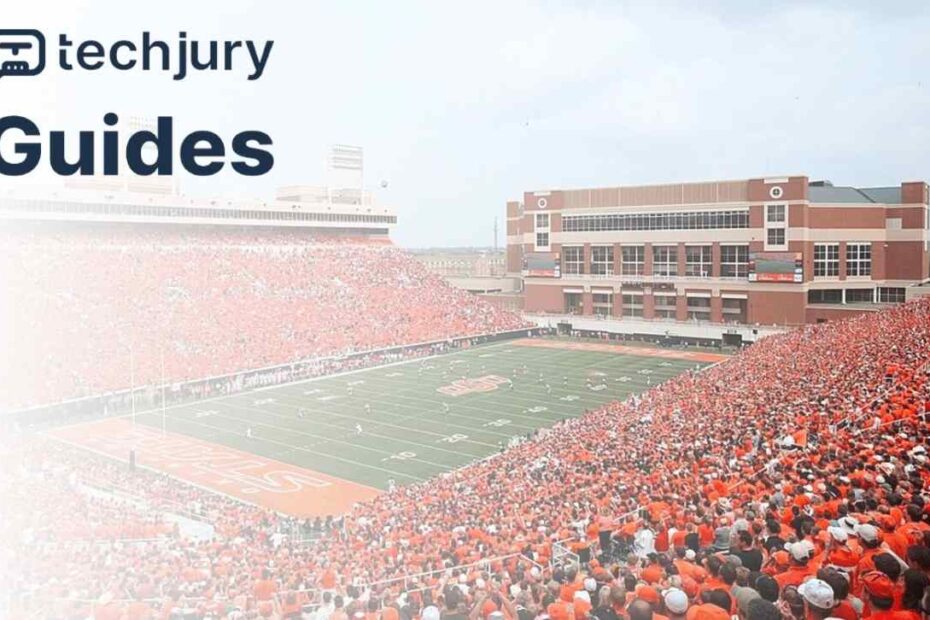The Unexpected Journey of a Cult Classic Video Game
When Electronic Arts released NCAA Football 14 in July 2013, nobody could have predicted the game would become a legendary collector‘s item with an almost mythical status among sports gaming enthusiasts. This isn‘t just another video game story—it‘s a fascinating exploration of technological limitations, legal complexities, and passionate fan dedication.
The Unexpected Discontinuation
The abrupt end of the NCAA Football video game series came at the height of its popularity, triggered by a perfect storm of legal challenges and changing collegiate athletics regulations. What seemed like a simple licensing issue would transform NCAA 14 into something far more significant than just another annual sports game release.
Technical Barriers: Why Modern Consoles Can‘t Play NCAA 14
Understanding why NCAA 14 remains trapped in the Xbox 360 and PlayStation 3 era requires diving deep into the complex world of video game backward compatibility. Microsoft‘s backward compatibility program, while ambitious, faced significant technical and legal hurdles that prevented NCAA 14 from making the generational leap.
The Backward Compatibility Challenge
Modern gaming consoles like Xbox One and Xbox Series X|S operate on fundamentally different architectural frameworks compared to their predecessors. The Xbox 360‘s hardware architecture uses a PowerPC-based system, while newer consoles employ x86 processors. This fundamental technological shift creates substantial emulation challenges.
For a game to become backward compatible, developers must:
- Rewrite substantial portions of the game‘s core code
- Address potential graphics rendering differences
- Ensure all original game mechanics function identically
- Navigate complex licensing and copyright landscapes
These requirements make backward compatibility an expensive and time-consuming process, especially for games with complex sports simulation mechanics like NCAA 14.
The Legal Labyrinth: Why NCAA 14 Remains Frozen in Time
The game‘s unavailability stems from a intricate legal battle involving Electronic Arts, the NCAA, and college athletes. A landmark class-action lawsuit filed by former student-athletes challenged the use of player likenesses without compensation, fundamentally altering the sports video game landscape.
Licensing Complexities
Before 2014, video game companies could use player representations without direct compensation. The lawsuit revealed the ethical and legal challenges of using student-athlete images without permission. This legal challenge effectively killed the NCAA Football video game series, making NCAA 14 the last entry in a beloved franchise.
The Collector‘s Market: A Fascinating Economic Phenomenon
Surprisingly, the game‘s discontinuation transformed NCAA 14 into a collector‘s treasure. Physical copies have seen remarkable price appreciation, with some versions selling for hundreds of dollars—a testament to the game‘s enduring appeal.
Market Value Dynamics
Typical used game prices might depreciate over time, but NCAA 14 defies this trend. Factors driving its value include:
- Unique gameplay mechanics
- No modern equivalent alternative
- Strong nostalgic appeal
- Limited available copies
- Dedicated fan community
Alternative Playing Methods
While official backward compatibility remains impossible, dedicated fans have discovered creative solutions:
Emulation and Preservation
Sophisticated emulation techniques allow players to experience NCAA 14 on modern systems. Emulators like RPCS3 for PlayStation 3 games provide a technical workaround, though they exist in a legal gray area.
The Future: EA Sports College Football
Hope emerges for college football gaming fans. Electronic Arts announced a new college football game scheduled for release in 2024, promising to address previous licensing challenges and leverage modern Name, Image, and Likeness (NIL) regulations.
What to Expect in the New Game
The upcoming title represents more than a game—it‘s a technological and legal reset for college sports video gaming. Expected features include:
- Modern player representation
- Enhanced graphics
- More realistic simulation mechanics
- Comprehensive team and player customization
Preservation and Collecting Strategies
For those passionate about maintaining their NCAA 14 experience, several strategies emerge:
Hardware Maintenance
- Preserve original Xbox 360 or PS3 consoles
- Store games in climate-controlled environments
- Use protective game cases
- Minimize physical handling
Digital Preservation
- Create digital backups where possible
- Join collector communities
- Document game versions and variations
Conclusion: More Than Just a Video Game
NCAA 14 represents more than a discontinued sports simulation. It‘s a cultural artifact capturing a specific moment in collegiate athletics, technological innovation, and gaming history.
Its continued relevance demonstrates how passionate communities can sustain and celebrate technological artifacts beyond their intended lifecycle. Whether you‘re a collector, a sports fan, or a gaming historian, NCAA 14 offers a fascinating window into the complex intersections of technology, law, and entertainment.
Key Insights
- Technological limitations prevent easy game migration
- Legal challenges dramatically impact game preservation
- Collector markets can transform seemingly obsolete products
- Passionate communities drive technological innovation
As we look toward the future of sports gaming, NCAA 14 stands as a powerful reminder that great experiences transcend technological boundaries.
